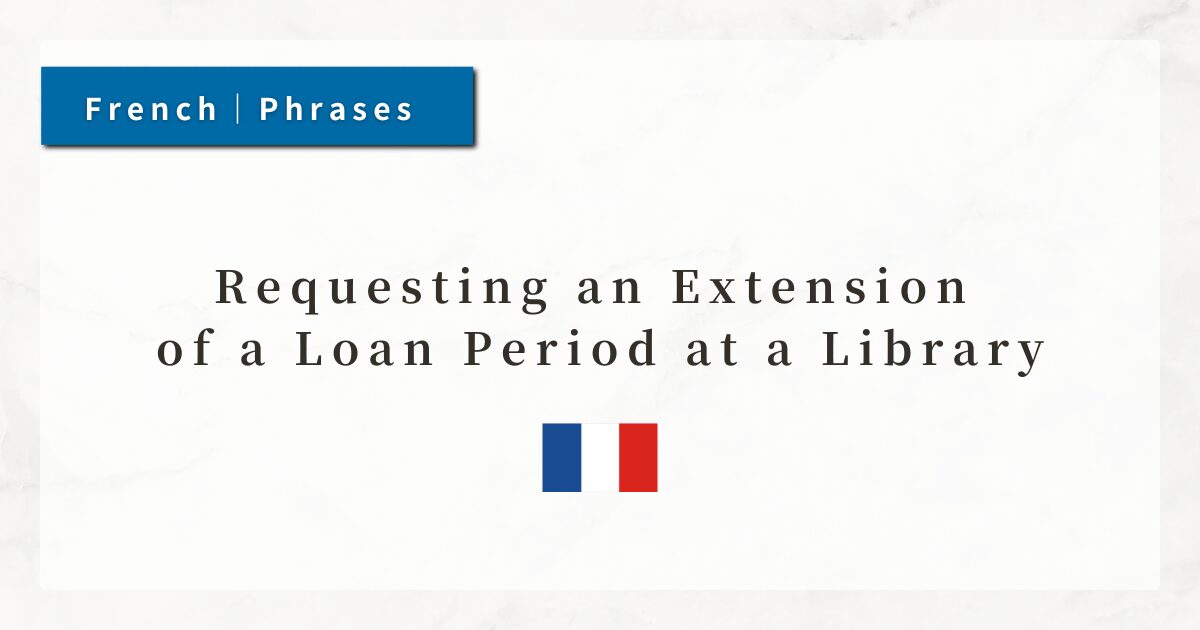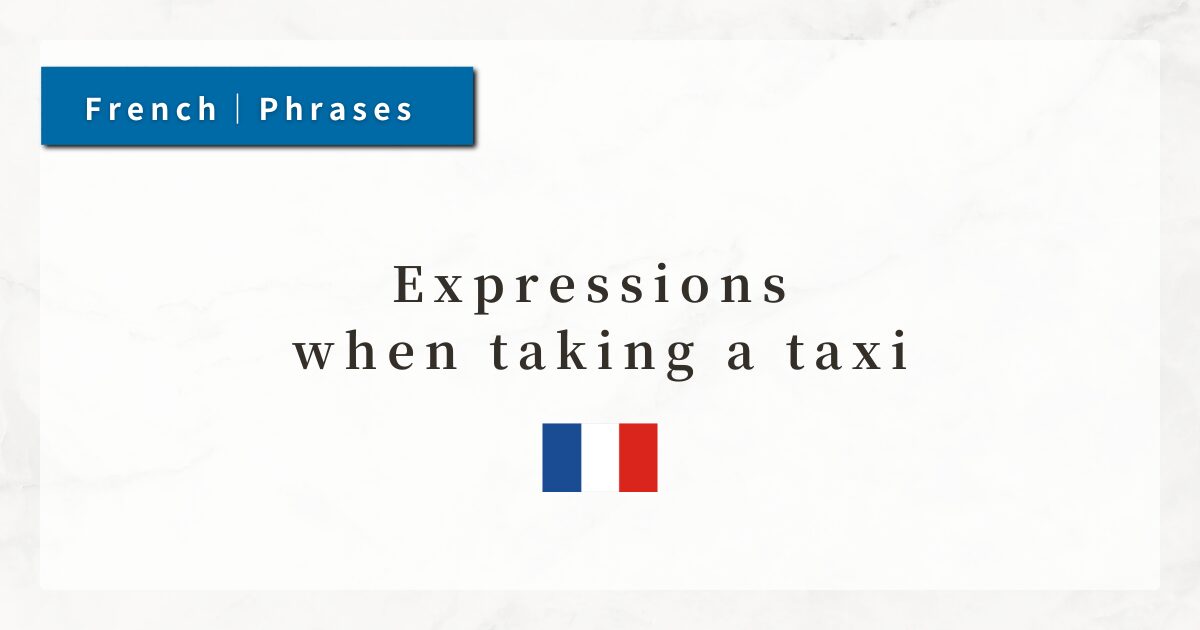#1 Essential Phrases for Airport Check-in|French Conversation Expressions

When traveling, you will need to go through a check-in procedure at the airport.
At the check-in counter, you typically confirm your flight, present your passport, and check in your luggage.
In this lesson, I will introduce useful French expressions for airport check-in procedures. By studying a sample conversation and learning key phrases, you can make your journey smoother and more enjoyable.
Dialogue

Bonjour. J’ai un vol pour Paris à 10 heures.
(Hello. I have a flight to Paris at 10 o’clock.)

Bonjour. Votre passeport, s’il vous plaît.
(Hello. Your passport, please.)

Oui, le voilà.
(Yes, here it is.)

Avez-vous des bagages à enregistrer?
(Do you have any luggage to check in?)

Oui, une valise.
(Yes, one suitcase.)

Très bien. Voici votre carte d’embarquement. Le vol partira de la porte 25.
(Very good. Here is your boarding pass. The flight will depart from gate 25.)

Merci beaucoup. Bonne journée !
(Thank you very much. Have a nice day!)

Bon voyage !
(Have a good trip!)
1. Tell the flight you are boarding
This phrase is used to tell the airline staff about your flight. It uses the verb avoir (to have), literally “I have a flight to …”.
- J’ai un vol pour Paris à 10 heures.
(I have a flight to Paris at 10 o’clock.)
When expressing a destination, always use pour (to) followed by the city name.
- J’ai un vol pour Tokyo.
(I have a flight to Tokyo.)
When giving the departure time, use the preposition à (at).
You may also add expressions such as “du matin” (in the morning), “de l’après-midi” (in the afternoon), or “du soir” (in the evening) for clarity.
- J’ai un vol pour Paris à 10 heures du matin.
(I have a flight to Paris at 10 a.m.)
2. Present your passport
This is a standard polite expression when requesting something.
- Votre passeport, s’il vous plaît.
(Your passport, please.)
“s’il vous plaît” literally means “if it pleases you,” and corresponds to English please.
- “s’il vous plaît”
→ in formal or public situations (airport, hotel, shops). - “s’il te plaît”
→ in casual situations with friends.
Examples often heard at the airport:
- Votre billet, s’il vous plaît.
(Your ticket, please.)) - Votre carte d’identité, s’il vous plaît.
(Your ID card, please.)
3. Expressions that express “please”
This expression is used when handing something over.
- Oui, le voilà.
(Yes, here it is.)
Literally, it means “there it is,” but in practice, it corresponds to “Here you are.”
- Votre carte d’embarquement ? – La voilà.
(Your boarding pass? – Here it is.) - Vos bagages ? – Les voilà.
(Your luggage? – Here they are.)
The form changes according to the gender and number of the noun: le / la / les voilà.
4. Leave your luggage
The verb “enregistrer” normally means “to register,” but at the airport, it means “to check in luggage.”
- Avez-vous des bagages à enregistrer?
(Do you have any luggage to check in?)
“Bagages” is generally used in the plural, even when referring to a single item.
- Je voudrais enregistrer cette valise.
(I would like to check in this suitcase.) - Combien de bagages puis-je enregistrer ?
(How many pieces of luggage can I check in?) - Quel est le poids maximum autorisé ?
(What is the maximum allowed weight?)
5. Boarding-related phrases
This means boarding pass, the document required to board your flight.
- Voici votre carte d’embarquement.
(Here is your boarding pass.)
Related vocabulary:
- porte d’embarquement
(boarding gate) - heure d’embarquement
(boarding time)
6. Expression of travel greetings
This is the classic expression to say to someone who is leaving on a trip. Literally, “Have a good trip!”
- Bon voyage !
(Have a good trip!)
It is used not only by airport staff but also by friends or family before departure.
- Bonne route !
(Safe journey / Have a good drive!)
For air travel or long-distance trips, however, Bon voyage ! is the most natural choice.。
Summary
- J’ai un vol pour [destination] à [time].
→ I have a flight to [destination] at [time]. - Votre passeport, s’il vous plaît.
→ Your passport, please. - Avez-vous des bagages à enregistrer ?
→ Do you have any luggage to check in? - le voilà. → Here it is.
- carte d’embarquement → boarding pass
- Bon voyage ! → Have a good trip!




